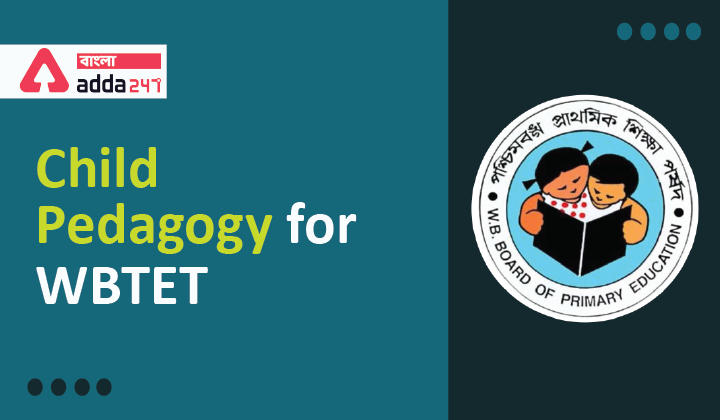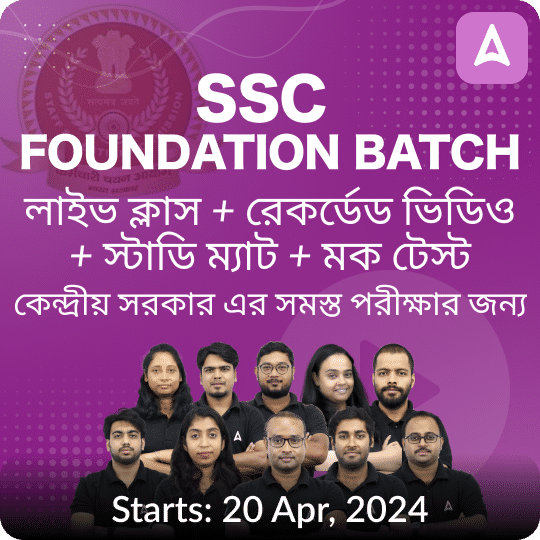Child Pedagogy MCQ (শিশু শিক্ষাবিদ্যা MCQ): Child Pedagogy MCQ is very important for WBTET exam. You get here daily Child Pedagogy MCQ. Everyday you get 10 Child Pedagogy Question & Solution. It is necessary for upcoming teaching exam.
Q1. নিচের কোনটি ভাষার উপাদান নয়?
(a)প্রাগম্যাটিক্স
(b) সেমান্টিক্স
(c) লিঙ্গুইস্টিক
(d) ব্যাকরণ
Q2. কোন মনোবিজ্ঞানী বা ভাষাবিদরা পরামর্শ দিয়েছেন যে চিন্তা সম্পূর্ণরূপে ভাষা দ্বারা নির্ধারিত হয়?
(a) পাইগেট এবং ভাইগোটস্কি
(b) স্কিনার এবং চমস্কি
(c) চমস্কি এবং ভাইগটস্কি
(d) সাপির এবং হোর্ফ
Q3. ভাষার কোন তত্ত্ব দাবি করে যে ভাষা কন্ডিশনার পণ্য?
(a) আচরণবাদ তত্ত্ব
(b) গঠনবাদ তত্ত্ব
(c) কার্যকারিতা তত্ত্ব
(d) মানবতাবাদ তত্ত্ব
Q4. কোন মনোবিজ্ঞানী একটি শিশুর ভাষা বিকাশে মিথস্ক্রিয়াকে সবচেয়ে গুরুত্বপূর্ণ বলে বিবেচিত তত্ত্বটি তৈরি করেছেন?
(a) জিন পিয়াগেট
(b) লেভ ভাইগটস্কি
(c) বিএফ স্কিনার
(d) নোয়াম চমস্কি
Read More: Income Tax Department Recruitment 2022
Q5. ভাষা _______ চিন্তা প্রক্রিয়া।
(a) সম্পূর্ণরূপে আমাদের নিয়ন্ত্রণ করে
(b) আমাদের উপর প্রভাব ফেলে
(c) নির্ধারণ করতে পারে না
(d) প্রভাবিত করে না
Q6. নিচের কোনটি ভাষার বিকাশকে প্রভাবিত করে এমন সামাজিক কারণ নয়?
(a) পিতামাতার সাথে মিথস্ক্রিয়া
(b) সমবয়সীদের সাথে মিথস্ক্রিয়া
(c) শিক্ষাগত পরিবেশের সাথে মিথস্ক্রিয়া
(d) আর্থ-সামাজিক অবস্থার সাথে মিথস্ক্রিয়া
Q7. থ, পিএইচ, চ ধ্বনিগুলো
(a) মরফিমস
(b) গ্রাফিম
(c) লেক্সামেসি
(d) ফোনেমেস
আরজভ বলেছেন যে ভাষার বিকাশ একজনের সহজাত প্রবণতা দ্বারা প্রভাবিত হয় যখন সোনালী মনে করেন যে এটি পরিবেশের কারণে। আরজব ও সোনালির মধ্যে এই আলোচনা
(a) সমালোচনামূলক এবং সংবেদনশীল অনুভূতি
(b) স্থিতিশীলতা এবং অস্থিরতার যুক্তি
(c) ক্রমাগত এবং অবিচ্ছিন্ন শিক্ষা
(d) নেচার এবংনার্চার বিতর্ক
Q9. ফোনোলোজিক্যাল সচেতনতা ক্ষমতা বোঝায়
(a) শব্দের গঠন প্রতিফলিত করুন এবং পরিবর্তন করা
(b) সাবলীল এবং নির্ভুলভাবে কথা বলা
(c)জানা, বোঝা এবং লেখা
(d) ব্যাকরণের নিয়মগুলি আয়ত্ত করা
Q10. নিচের কোনটি শিশুদের চিন্তাভাবনা ও শেখার উপযোগী পরিবেশের জন্য উপযুক্ত?
(a) দীর্ঘ সময়ের জন্য নিষ্ক্রিয় শ্রবণ
(b) হোম অ্যাসাইনমেন্টগুলি ঘন ঘন দেওয়া হয়
(c) শিক্ষানবিসদের দ্বারা করা ব্যক্তিগত কাজ
(d) শিক্ষার্থীদের কী শিখতে হবে এবং কীভাবে শিখতে হবে সে সম্পর্কে কিছু সিদ্ধান্ত নেওয়ার অনুমতি দেওয়া
Read Also : RBI Grade B Notification 2022
Child Pedagogy MCQ Solution
S1. Ans.(c)
Sol. Linguists have identified five basic components (phonology, morphology, syntax, semantics, and pragmatics) found across languages.
Semantics – it is the study of words and their meaning.
Grammar – it refers to the rules used to describe the structure of the language.
Pragmatics – it is the study of how people use language to communicate effectively.
S2. Ans.(d)
Sol. Two researchers, Edward Sapir and Benjamin Lee Whorf, began this investigation in the 1940s. They wanted to understand how the language habits of a community encourage members of that community to interpret language in a particular manner (Sapir, 1941/1964). Sapir and Whorf proposed that language determines thought.
S3. Ans.(a)
Sol. The behaviorist theory believes that “infants learn oral language from other human role models through a process involving imitation, rewards, and practice. When a child attempts oral language or imitates the sounds or speech patterns they are usually praised and given affection for their efforts.
S4. Ans.(b)
Sol. Two specific cognitive activities influenced by engagement with parents are play and language skills. The classic theory of cognitive development proposed by Lev Vygotsky underscores how social interaction can facilitate the development for play, language, and other cognitive skills, such as attention and memory.
S5. Ans.(b)
Sol. Languages don’t limit our ability to perceive the world or to think about the world, rather, they focus our attention, and thought on specific aspects of the world. There are so many more examples of how language influences perception, like with regards to gender and describing events.
S6. Ans.(c)
Sol. Specific social factors that can affect second language acquisition include age, gender, social class, and ethnic identity. Situational factors are those which vary between each social interaction.
S7. Ans.(d)
Sol. A phoneme is a basic unit of a language’s phonology, which is combined with other phonemes to form meaningful units such as words or morphemes. Hence, the sounds th, ph, ch are phonemes.
S8. Ans.(d)
Sol. Heredity and environment are inseparably interwoven and both influence development. Nature refers to the genetic influence or the traits inherited by a child from its parents. Nurture is all about the upbringing of a child or the environment in which a child grows.
S9. Ans.(a)
Sol. Phonological awareness is the foundation for learning to read. It’s the ability to recognize and work with sounds in spoken language. Phonological awareness refers to an individual’s awareness of the phonological structure, or sound structure, of words. Phonological awareness is an important and reliable predictor of later reading ability and has, therefore, been the focus of much research.
S10. Ans.(d)
Sol. Conducive learning environment could be made more constant and enlivening by allowing students to take some decision about what and how to learn as it will:
- Promote the child-centered approach to education.
- Get students to focus on you now and then by not keeping slides up for too long.
- Give primacy to children’s experiences and needs.
- Allow children to work at their own pace freely and willingly.
- Provide them opportunities to foster their own strategy of learning.
- Read more :
Child Pedagogy প্রতিদিন ADDA 247 বাংলা 10 টি করে MCQ সহ Answers এবং Solution দিচ্ছে। WB TET, CTET পরীক্ষার জন্য Child Pedagogy অত্যন্ত গুরুত্বপূর্ণ। এছাড়া History, Geography, Physics, Chemistry, Biology, Economics, Polity এবং Daily Reasoning এর নতুন নতুন অনেক MCQ পরীক্ষার্থীদের সকল প্রতিযোগিতামূলক পরীক্ষায় সাফল্য আনতে সাহায্য করবে। প্রতিযোগিতামূলক উত্তীর্ণ হওয়ার চাবিকাঠি Mathematics এবং Reasoning। Daily Mathematics এবং Reasoning প্র্যাক্টিস যেকোনো পরীক্ষার্থীকে সাফল্যের দোরগোড়ায় পৌঁছে দেবে।
Watch More on YouTube:
Adda247 ইউটিউব চ্যানেল – Adda247 Youtube Channel
Adda247 টেলিগ্রাম চ্যানেল – Adda247 Telegram Channel










